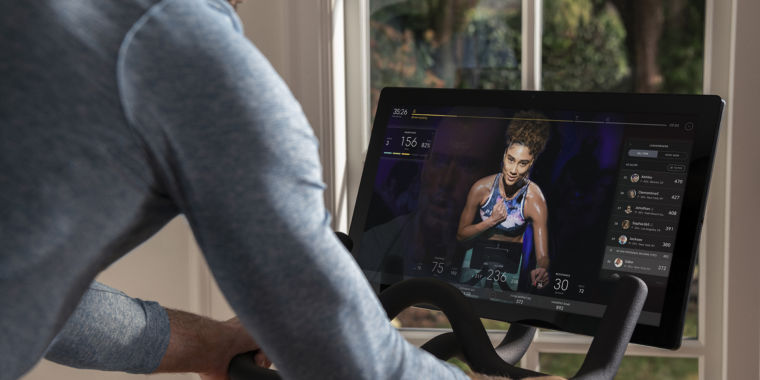Peloton will start charging people a one-time $95 “used equipment activation fee” for used bikes purchased from outside of Peloton and its official distribution partners.
The fee will apply in the US and Canada. As pointed out by The Verge, Peloton confirmed in its fiscal Q4 2024 earnings call today that people who buy a used bike directly from Peloton or one of its third-party partners will not be subject to the fee.
During the call, Peloton’s interim CEO, Christopher Bruzzo, said that the activation fee “will be a source of incremental revenue and gross profit” and support Peloton’s “investments in improving the fitness experience for our members.”
Peloton also claimed in a letter to shareholders [PDF] that the fee is related to ensuring that the subscription customers that Peloton gains through used bike sales “receive the same high-quality onboarding experience.”
Secondhand bikes already help make Peloton money
Peloton doesn’t immediately make money when someone sells their unwanted bike to someone else for a discount, but it is making significant money from people buying subscriptions to use with their secondhand gear. In its Q4 2024 shareholder letter, Peloton said that secondhand bike sales deliver “a steady stream of paid connected fitness subscriber additions, up 16 percent” year over year in Peloton’s fiscal Q4.
People who buy used bikes outside of Peloton also “exhibit lower net churn rates” than people who pay Peloton to rent its hardware, per the letter.
But Peloton’s hardware sales have tumbled—as has its worth—since booming during the COVID-19 pandemic. The new activation fee is characteristic of a company desperate for more revenue after going from a valuation of $50 billion in January 2021 to $2.1 billion in December 2023.
Peloton’s Q4 2024 earnings report today showed hardware sales declining 4 percent year over year (YoY). Subscription revenue increased 2.3 percent (YoY). Overall, Peloton achieved its first revenue growth (0.2 percent YoY) since its fiscal quarter that ended on December 21, 2021. The company still reported a loss of $30.5 million; although, that’s an improvement from a year ago, when it lost $241.8 million.
Fee could deter used equipment sales
Peloton will have to continue making big moves to turn a profit. However, the $95 fee could be seen as a deterrent to the used market and as unnecessary for the user experience.
Peloton gear is already known for being expensive (its Bike+, for example, is $2,500 as of this writing). The used market makes Peloton’s products more accessible and allows people to recoup some of their losses from unwanted equipment while also avoiding connected gym equipment becoming e-waste. A $95 fee takes away some of the savings people have been enjoying for years by opting for a secondhand Peloton.
The fee is also a standout from most the secondhand market (imagine paying Toyota a “reactivation fee” to drive a used car you purchased, or having to pay Lenovo a separate fee in order to use the refurbished laptop you just got).
As nermal543 on Reddit put it:
That’s completely ridiculous. Why would you want to discourage people from buying used equipment and getting an active subscriber back on board for $50/month? Because presumably whoever is selling doesn’t want to pay the subscription fee anymore. Yikes.
Peloton continues to face challenges to bouncing back after a meteoric rise and fall tied to the pandemic. It’s also employing cost-cutting measures, like reducing marketing and sales spend, CNBC noted. And in May, Peloton announced layoffs of about 400 workers (about 15 percent of the workforce), as well as the quitting of its second CEO in two years. Peloton has undergone multiple rounds of layoffs lately, with job reductions by the hundreds also occurring in February 2023, October 2022, August 2022, July 2022, and in February 2022, when it announced that it was laying off 2,800 people. After having 8,600 workers in 2021, Peloton now employs about 3,000.
Some may be perturbed by Peloton’s efforts to make money. However, investors are seemingly happy, as CNBC noted that shares increased over 30 percent in afternoon trading.
This isn’t the first we’ve heard of a company, whose unit sales thrived during the pandemic, seeking novel and controversial ways to keep the money flowing. Last month, CEO Hanneke Faber discussed Logitech’s idea for a “forever mouse” that requires a subscription for software updates.
